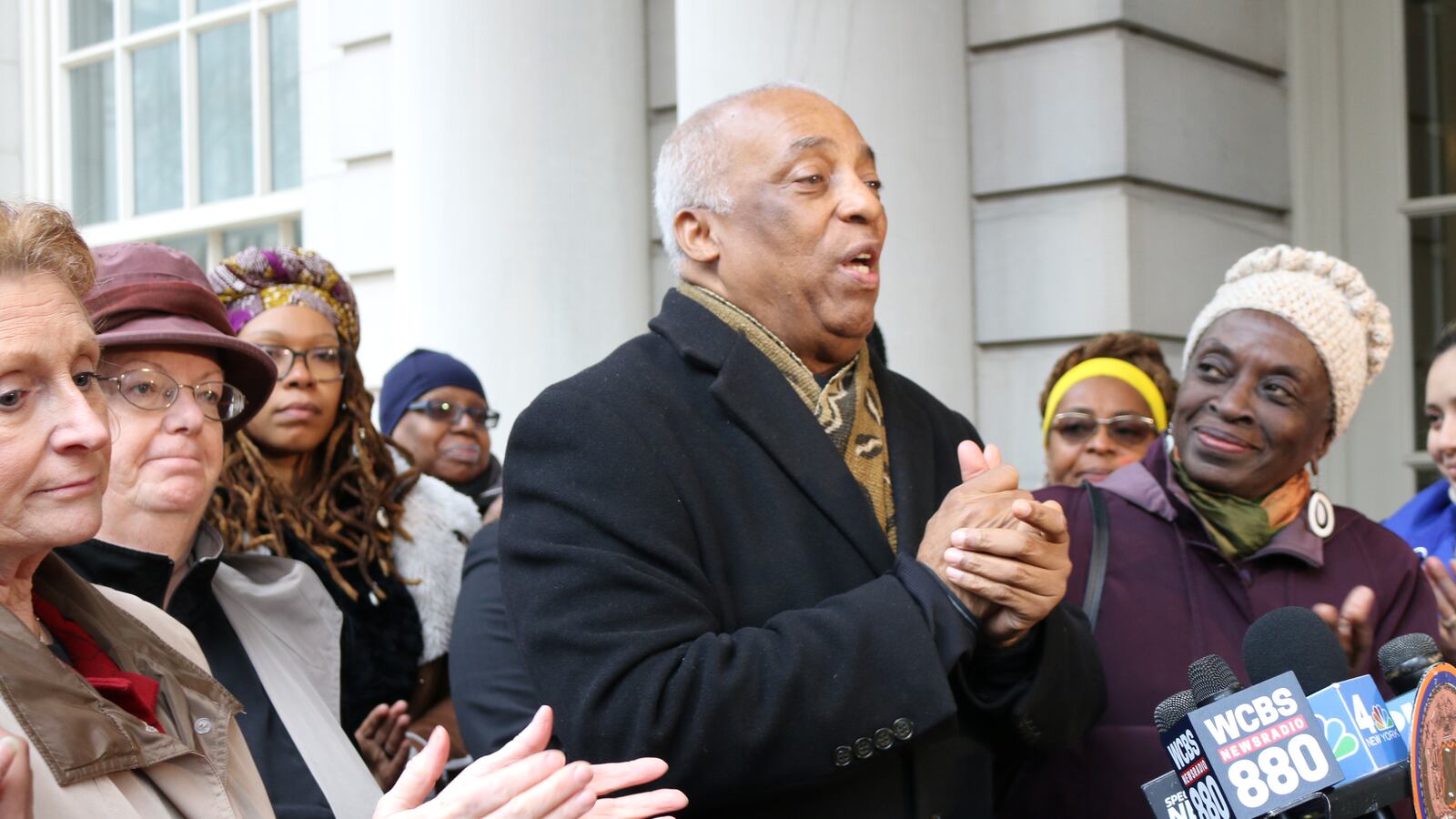The state lawmaker who sponsored the bill backing Mayor Bill de Blasio’s controversial specialized high school plan is changing his strategy for diversifying the elite schools.
Assemblyman Charles Barron, whose bill failed in Albany last session, told Chalkbeat he and other lawmakers will abandon their push to amend the section of education law requiring the Specialized High School Admissions Test and will try instead to repeal it — taking the state out of the city’s school admissions rules altogether.
Barron’s acknowledgment that he won’t resubmit the controversial bill is another blow to the mayor’s plan, which de Blasio has signaled may need to be abandoned for another strategy for integrating the schools. On “Inside City Hall” Monday, de Blasio said of the SHSAT bill, “we didn’t succeed this time, and we’ve got to think of different approaches.”
While there is no bill yet, Barron said he and other politicians have spent the summer working on this new plan, even before de Blasio’s recent comments. Still, Barron said New Yorkers should expect legislation next session that would call to repeal the Hecht-Calandra law of 1971, which requires students to take an admission exam to get into the three most populous specialized high schools: Stuyvesant, Bronx Science, and Brooklyn Tech.
“Then the state is out of determining local school policy for New York City, and then it’s on the mayor and chancellor to determine the policy — then you’ll see where (the mayor) really is,” Barron said in an interview Tuesday. “To me, that is the better strategy.”
It’s unlikely Barron’s proposal will win over many opponents of the previous legislation, but it could gain more support among upstate lawmakers who don’t have a New York City constituency.
City Hall did not respond to a request for comment.
Barron declined to name the other politicians supporting the plan or potential sponsors of the future bill, emphasizing that the discussion is still in its “embryonic stages.” But he and others are planning to present this option to fellow lawmakers later this fall.
“To me it doesn’t matter who the sponsor is,” Barron said. “To me it’s like, we gotta get this done.”
After years of concern over how few black and Hispanic students were offered admission to these high schools, including who could afford pricey test prep, the mayor proposed an alternative plan in 2018: Get rid of the admissions exam and admit the top 7% of students from each middle school. Brooklyn Democrat Barron proposed a bill that would change Hecht-Calandra and institute the mayor’s plan.
But the effort immediately hit a deluge of opposition, particularly from some white and Asian lawmakers and families, whose children have earned a disproportionate amount of offers to these schools for years and have argued that the mayor’s plan would unfairly elbow them out. This year, 51% of offers went to Asian students and 29% went to white students, even though together they make up 31% of students citywide. In contrast, a little more than 10% of offers went to black and Hispanic students, who make up just under 70% of city students.
The bill advanced further in the legislature this year than it did in 2018, largely fueled by renewed outrage over admissions numbers – just seven of 895 offers to Stuyvesant went to black students, for example. A formal public hearing was held over the bill, and the issue was the subject of multiple town halls hosted by Queens Sen. John Liu, chair of the Senate’s New York City education committee. Barron’s bill made it out of the education committee and was even conferenced among Assembly Democrats – meaning, they debated its merits behind closed doors.
But the bill failed to make it to the Assembly floor and had little chance of going anywhere in the Senate.
So Barron said he turned to comments that lawmakers and the public made during the Democratic conference and during the public hearing in New York City.
“A lot of people said, ‘The state should get out of it,’” Barron said. “We said, ‘Hey let’s take that route.’”

